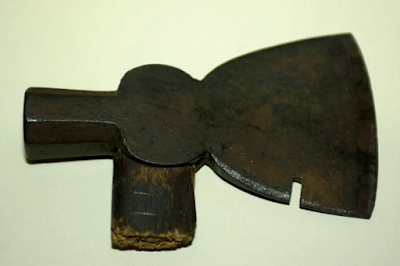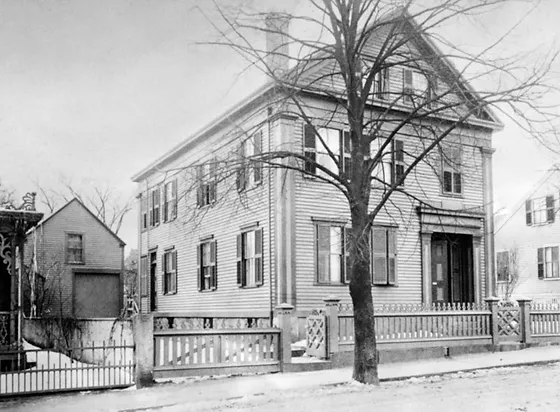And gave her Mother Forty Whacks,
When she saw what she had done,
She gave her Father Forty-One.
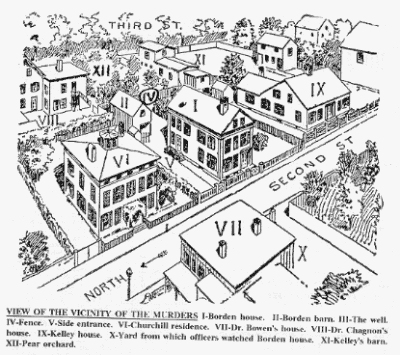
Lizzie Borden was tried for the murder of her millionaire father and stepmother before an all male jury. When questioned later, these jurors said they couldn't believe a woman would use a hatchet, no one ever thought she used an ax, to murder anyone. Poison was a woman's weapon to commit murder.
Two people were in the LOCKED house at the time of the murders, other than the victims, Irish Maid Bridget Sullivan and daughter Lizzie Borden. Lizzie's stepmother was killed on the 2nd Floor their 92 Street Home at about 9:00 to 9:30 AM on August 4, 1892. It was a stifling hot day.


Lizzie's maid Bridget Sullivan at the time of the murder in 1892 and 40 years later in Montana.

After reflecting on Lizzie's acquittal, her defense attorney was former Massachusetts Governor George Robinson, who happened to be the man who appointed the trial judge to the bench, Bridget Sullivan spoke only once about the case, telling reporters immediately after the trial.
AIN'T IT GLORIOUS TO BE RICH!
Prosecutor/District Attorney Hosea Knowlton and Fall River Town Marshall Hilliard knew within minutes of the murder that the number one suspect had to either be Lizzie or Bridget, but they also knew that only Lizzie profited from the murder. Police and prosecutors look for three things investigating a crime: motive, means and opportunity. Lizzie inherited half her father's estate, roughly $125,000 at the time, the equivalent to $2,250,000 now. The suspected weapon was found downstairs in the basement. A hatchet was found in a box of tools with a broken handle. But it wasn't covered in dust, it was covered in ashes, when rinsed off, the break in the handle was shown to be recent and fresh. When Andrew Borden came home at 11 AM, the front and side doors were both locked and bolted from the inside, preventing him from getting into the house. He had to knock loudly, Bridget was on the third floor attic apartment, while Lizzie was either on the 1st or 2nd floor, her story changed repeatedly. Andrew, possibly cursing, mumbled under his breath as Bridget let him in the house. Bridget and Andrew heard Lizzie laugh from the second floor only a few feet from Abby's dead body.
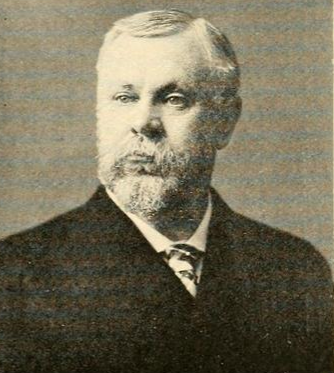
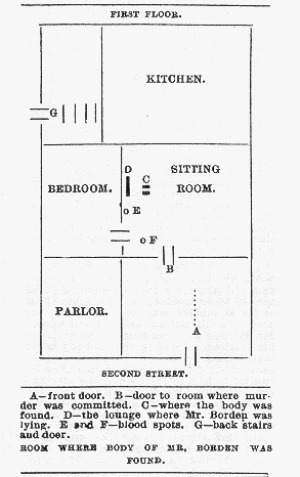

I went to Newport, Rhode Island in 2006, to visit my childhood home on Washington Street. Since it was only a few miles away, I visited Fall River, Massachusetts too and dropped in on the Borden house. We lived in this house on Washington Street, in the apartment on right with the red door. I remember looking out our bay window seeing JFK, Jackie and Caroline Kennedy cruising down Narragansett Sound. Once I saw a submarine surface right behind our house.

After the tour guide was through with his speech, he asked for questions and I was ready asking him a series of questions about the murder. I told him that I had read Victoria Lincoln's "Murder by Daylight" about the case. Victoria had been a child in Lizzie's neighborhood on the hill in the 1920's. She had seen Lizzie working in her garden and on her front porch many times. When she heard the other kids in the neighborhood singing the famous rhyme, Victoria went to her mother and asked what the song meant. Her Mom explained, a long time ago "Lizzie was very unkind to her mother and father."

Lizzie lived with her sister Emma, Dad Andrew and Stepmother Abby Durfee Gray Borden on 92nd Street. Their father had moved there in his youth before he became really rich. He was an up and coming undertaker, famous for being the cheapest one in town. As one might imagine, undercutting other mortuaries, led to stories like he cut the legs off a 6'4" man to fit him in a casket designed for a man 5'10".
Lizzie resented the fact that her father was, in 1892, on the board of almost every company and bank in town and yet they still lived in the same middle class home he had moved into with his first wife Sarah in 1845 and finally bought in the the 1871. He was one of the richest and one of the most successful men in town and was the President of one of the largest banks, but lived like he didn't.
The Borden's had an overnight house guest, Andrew's first wife, Sarah Borden's, Emma and Lizzie's Mom, brother John Vinicum Morse. Though he would have no real alibi for the murder of Abbey at 9 to 9:30 AM, he had an alibi for Andrew Borden who was killed after 11 AM.

Mrs. Churchill sent Bridget for Dr. Bowen, a good Anglo-Saxon, fit for society doctor, but he was making a house call, so Bridget brought neighbor Irish Catholic Dr. William Dolan, who happened to also be the county medical examiner. He had served during the Civil War and made a very important determination, Abby had died hours earlier. Her blood was coagulated and drying, while Andrew Borden's was fresh. Their deaths were hours apart.

Under questioning from Town Marshall Hilliard and his men, who had interrupted the town clambake to come investigate the crime, Lizzie offered the alibi that she had been, as some point in the barn looking for wire to fix a screen, police checked, no screen had a tear in it. So she then said that she went to the barn to eat a pear from the yard, in the cool loft of the barn having left the door unlocked. Two boys who had been hanging around the crime scene after the news broke, came to Lizzie's defense team and told them they stole up to the loft to spy on the goings on. Brownie and me, Everett Brown and Thomas Barlow, both about 14/15-years-old, echoed Lizzie's testimony that it was coolest place around on that stifling hot August day. The young liars had distinguished records as juvenile delinquents and would work hard to perfect their art. They came from the poorer section of town.
The Borden Barn can be seen to the left behind the house. It is now where Lizzie Borden House tours end and contains the gift shop.
Twot view of Lizzie Bordens' Pea Tree

To the right in this photo it the famous pear tree where Lizzie got her pears to eat them in the "cool" barn loft. When police entered the barn and went to the loft, they found the temperature stifling hot, over 100 degrees.
"... Four months after the Borden trial Thomas Barlow and several friends were arrested on Sunday, October 8, 1893, for breaking and entering into Daniel F. Sullivan's Boots and Shoes at 40 South Main at 11 p. m. When confronted by the police at the store they were wearing shoes which had been stolen earlier from Sears and Hall Boots and Shoes at 13 Granite Block...."

Assistant Marshall Fleet the first officer on the scene said that was ridiculous. He had checked out the barn, it was stifling hot, going to the loft, found it even hotter. He also testified that the loft floor had a thick coat of dust, undisturbed by either Lizzie's or the boys' footprints. He also made the "mistake of referring to Abby as Lizzie's mother," earning a rebuke from Lizzie.
"She was not my mother, sir," Lizzie replied, "She was my stepmother: my mother died when I was a child."

The most compelling testimony came again from Alice Russell. Russell described a visit from Lizzie the night before the murders in which she announced that she would soon be going on a vacation and felt "that something is hanging over me--I cannot tell what it is." Then, according to Russell, after describing her parents' severe stomach sickness (which she attributed to bad "baker's bread"), Lizzie revealed, "I feel afraid something is going to happen." Explaining her feeling, Lizzie told Russell that "she wanted to go to sleep with one eye open half the time for fear somebody might burn the house down or hurt her father because he was so discourteous to people." Turning his questioning to the Sunday after the murders, District Attorney Moody asked Russell about the dress burning incident. Russell recounted that when she asked Lizzie what she was doing with the blue dress, she replied, "I am going to burn this old thing up; it is covered with paint." On cross-examination, defense attorney George Robinson attempted through his questions to suggest that a guilty person seeking to destroy incriminating evidence would be unlikely to do it in so open a fashion as Lizzie allegedly did. Russell also recounted a conversation with Lizzie about a note, which according to Lizzie's account, she received from a messenger on the morning of the murders summoning her to visit a sick friend. (Lizzie used the note to explain why she thought her mother had left the home and therefore didn't think to look for her body after discovering her father's. Despite a thorough search of the Borden home, the alleged note never was found.) Russell said she sarcastically suggested to Lizzie that her mother might have burned the note. Lizzie, according to Russell, replied, "Yes, she must have."


The most damaging testimony came from Lizzie close friend Alice Russell. Drawing from the Trial and a photo taken 40 years later from the old folks home. Her revelation that Lizzie burned a dress in the kitchen stoves because of "brown paint stains," while the police were repeatedly searching the home for clues is incredibly incriminating. But an all male jury, just couldn't believe a woman would commit an ax murder. Lizzie chose her weapon well. https://phayemuss.wordpress.com/2010/12/20/alice-russell-lizzie-bordens-turncoat-friend/
Chronology of the Borden Murders
December 25, 1845 Andrew Borden, 23, marries Sarah Morse and moves into a house on 92 Second St., Fall River, Massachusetts in 1845. Andrew later purchased this home in 1871
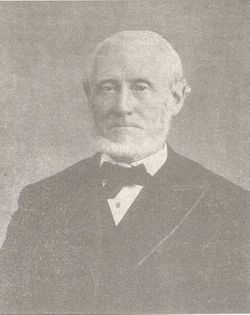

March 1, 1851 Emma Borden is born, shown here with her mom.
July 19, 1860 Lizzie Andrew Borden is born.
March 26, 1863 Sarah Borden, mother of Lizzie and her older sister Emma, 12, dies.

June 6, 1865 Andrew Borden remarries. His new wife is Abby Gray, age 37. Abbey comes from prominent families who have long since fallen on hard times.
1887 Lizzie Borden stops calling her stepmother "Mother."
In 1887, Abby’s stepmother, Jane Gray, decided to sell her half of the house at 45 Fourth Street in Fall River that was handed down to her when husband Oliver Gray died. Abby’s half-sister, Sarah Bertha “Bertie” Gray Whitehead, who was thirty-six years younger than Abby and whom Abby was very close to, had lived in the house all her life. Bertie then had a husband and two young children. Bertie’s second child, George, was born in March of 1887, and the transfer was in May, which meant that her youngest was only three months old.
It was feared that Bertie and her family would lose their home, and Abby appealed to Andrew to buy Jane Gray’s half of the house so her half-sister could retain the home. Andrew bought it and put it in Abby’s name.
The house had actually been the place of Andrew and Abby's marriage in 1865.

When Emma and Lizzie heard what happened, they were angry. They said that what Andrew did for Abby’s people he ought to do for his own. The girls were advised to ask Andrew for a like-property, and he gave them their grandfather Borden’s house at 12 Ferry Street, which allowed them to collect rent from the tenants there.
It was this event that supposedly threw both sisters over the edge. Lizzie stopped calling Abby “Mother.” She would talk ugly about Abby to others and refer to her as “Mrs. Borden” to her face. As near to the murders as the spring of 1892, Lizzie shared some harsh words about Abby to Hannah Gifford, the dressmaker for the Borden women:
https://lizzieandrewborden.com/HatchetOnline/what-was-in-abbys-pocket.html1889 Bridget Sullivan, an Irish immigrant, begins working at the Borden home.
June 24, 1891 Daytime robbery of cash and jewelry at the Borden home (Emma, Lizzie, and Bridget are home at time). Lizzie, who had earlier been accused of shoplifting by a local merchant, is the family's prime suspect. From this date, doors to the Borden home--inside and out--are kept locked.
April 1892 According to Hannah Gifford, a Fall River cloakmaker, Lizzie tells Gifford that Abby "is a mean old thing."
May or June 1892 Andrew Borden uses a hatchet to kill pigeons in the family barn. The pigeons roosted in a barn loft that Lizzie maintained for their benefit. Lizzie becomes hysterical over the loss.
July 21, 1892 Following a family disagreement, Lizzie and Emma Borden leave Fall River and travel to New Bedford.
August 2, 1892 Abby and Andrew Borden awaken, complaining of stomach sickness. Abby visits Dr. Bowen. She suggests that she might have been poisoned, but Dr. Bowen is skeptical.
Aug. 3, 1892: A.M. Lizzie reportedly tries, unsuccessfully, to buy some poison from Eli Bence at D. R. Smith's drug store.

Bence offers this testimony at the inquest, but his testimony is ruled inadmissible at trial, since this was an "ax murder" not a poisoning.
Aug. 3, 1892: P.M. John Morse arrives for a stay with the Bordens. Lizzie visits Alice Russell and talks forebodingly about household activities. She says she fears poisoning, that her father has enemies, and that she has seen suspicious characters around the family house. "I'm afraid but that someone will do something," she says.
Aug. 4, 1892: A.M. About 7 A.M., Abby, Andrew, and John Morse have breakfast. Afterwards, Morse and Andrew go to the sitting room while Abby begins her house cleaning chores. Bridget Sullivan goes to the backyard to throw up. Morse leaves about 8:45. Libby has a light breakfast about 9 A.M. A few minutes later, Andrew leaves the home, taking with him some letters that Lizzie asked him to mail.
Aug. 4, 1892: 9:30 A.M. Abby goes up the stairs to continue her house cleaning on the second floor. Bridget Sullivan is outdoors cleaning windows for the next hour. Sometime during the next hour, Abby Borden is killed in the guest room by 19 hatchet blows to the back of her head.
Aug. 4, 1892: 11 A.M. Andrew Borden returns home carrying a small parcel. Originally he goes to the side door which is always left open and finds it locked and bolted, then he goes to the front door, which is also locked and bolted. He knocks loudly and is obviously angry and confused by the locked and bolted doors. Bridget Sullivan lets Andrew into the house as she hears laughter from upstairs, from Lizzie at the head of the stairs. Lizzie visits her father briefly in the dining room, telling him that Abby had received a message and left the house. Andrew lies down in the sitting room, and Bridget goes to rest in her attic room to lie down.
Andrew Borden is murdered shortly thereafter in the sitting room sofa. Lizzie calls for Bridget, saying someone had killed her father. Lizzie tells a neighbor, Adelaide Churchill, that she had been in the barn looking for "irons" (sinkers for an upcoming fishing trip) at the time of the murder. Shortly after 11:15, police are notified of the murders.

Addie Churchill
Aug. 4, 1892: P.M. Dozens of policemen troop in and out of the Borden home. Doctors perform a post-mortem on the bodies on the dining room table. Lizzie is interrogated by Deputy Marshal Fleet. Lizzie speaks in a detached manner and when Fleet calls Abby her mother, Lizzie insists, "She is not my mother--she is my step-mother."


Officers Harrington and Medley are the first to arrive on scene, both would later become Fall River Police Chiefs.
August 6, 1892 An editorial in the Fall River paper criticizes the police for inaction in the Borden case. A funeral service for Andrew and Abby is held at the Borden home.
August 7, 1892 Emma observes Lizzie burning her blue corduroy dress in the kitchen fire.
August 9-11, 1892 An inquest, closed to the public, is held to consider the murders of Andrew and Abby Borden. On August 11, Lizzie Borden is arrested by Marshal Hilliard.
August 12, 1892 Lizzie enters a plea of "Not Guilty." Lizzie is moved to a jail in Taunton, eight miles north of Fall River.
August 22-23, 1892 A preliminary hearing is held. Judge Josiah Blaisdell finds that there is probable cause to try Lizzie for murder.
November 31, 1892 Alice Russell tells the grand jury about the visit she received from Lizzie the night before the murders. The grand jury issues an indictment against Lizzie for murder two days later..
June 5, 1893 The trial of Lizzie Borden opens at the New Bedford Court-house in this courtroom.
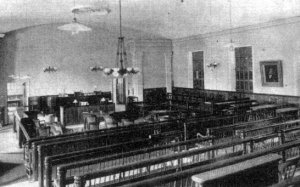
June 20, 1893 The jury returns its verdict in the Lizzie Borden trial: "Not Guilty."
June 1, 1927 Lizzie Borden dies at age 67. Eight days later, her sister Emma dies. Both women were buried at the family burial plot in Oak Grove Cemetery in Fall River.
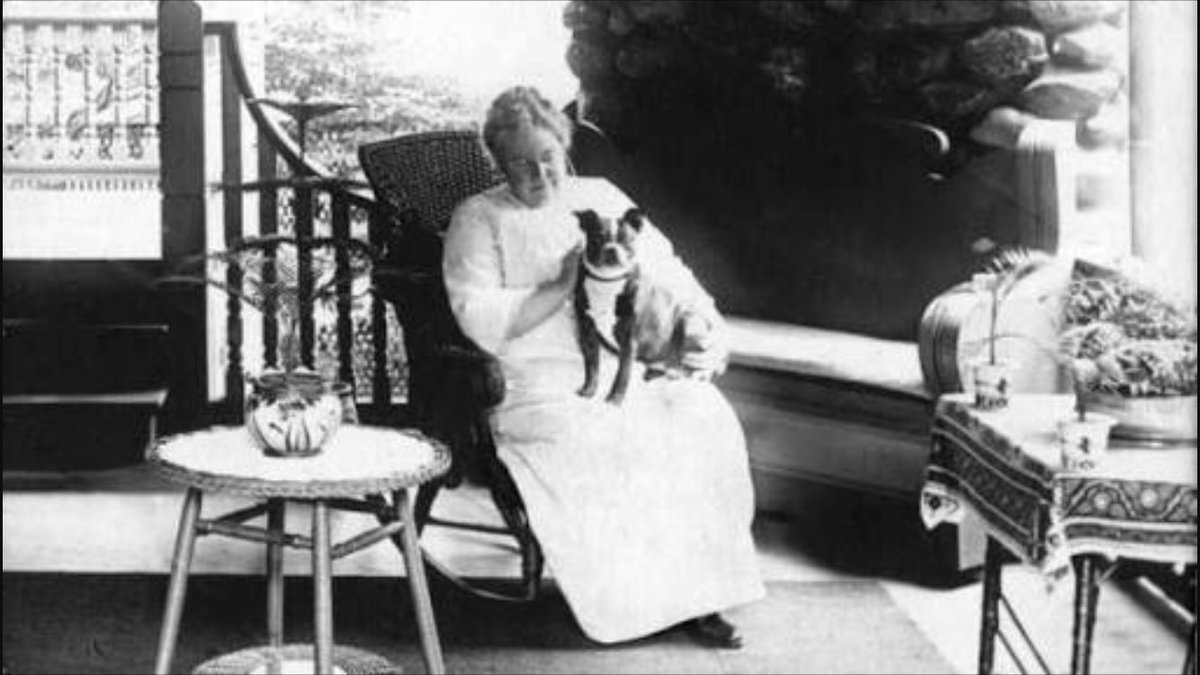
Lizzie Borden at Maplecroft
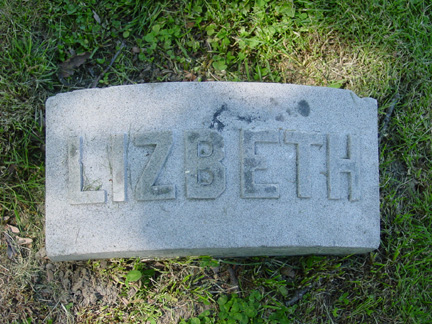


Lizzie buried in the family plot, next to her Mom and Dad, stepmother and sister Emma
https://www.famous-trials.com/lizzieborden/1441-chronology
WARNING, crime scene photos.
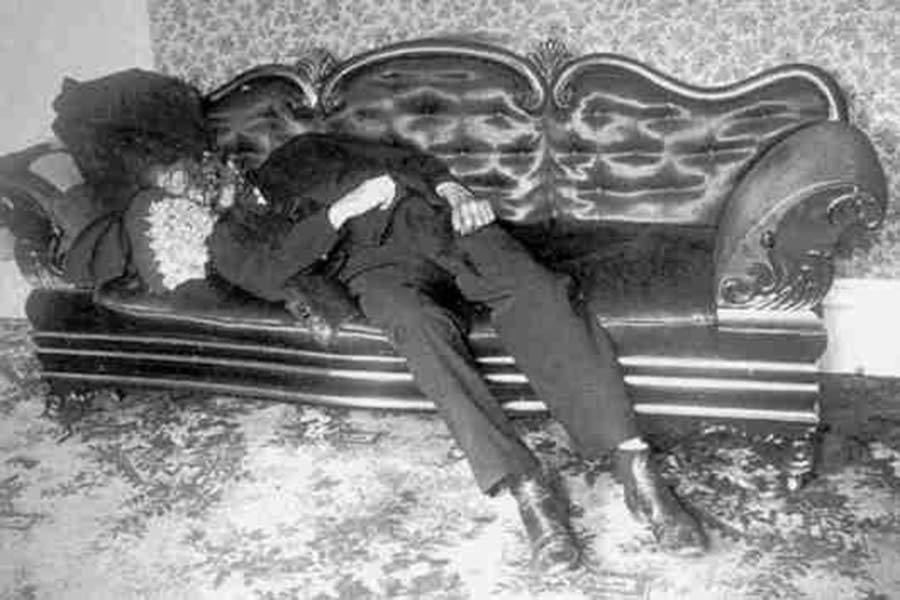
Andrew came home from his bank and lay down on the couch in the living room. He was struck from behind. Normally, he would hang up his jacket on the hangar in the entrance hall, but here it is shown rumpled and balled up below his head. One theory, Lizzie wore his jacked backwards to stop any blood from getting on her.
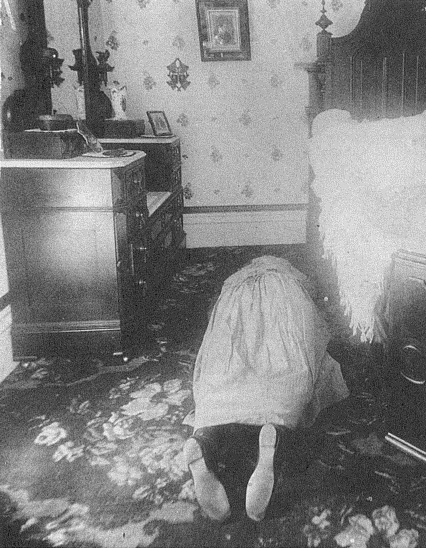
Abby was upstairs cleaning the guest room when she was attacked from behind, receiving seventeen blows from a hatchet at 9 AM. As the coroner would say the blows were not powerful, but hideously persistent.


Autopsy photo of Abby's shaved head, proof that the coroner was 100% right in saying the blows were weak but hideously persistent.
WARNING, crime scene photos.

Andrew came home from his bank and lay down on the couch in the living room. He was struck from behind. Normally, he would hang up his jacket on the hangar in the entrance hall, but here it is shown rumpled and balled up below his head. One theory, Lizzie wore his jacked backwards to stop any blood from getting on her.

Abby was upstairs cleaning the guest room when she was attacked from behind, receiving seventeen blows from a hatchet at 9 AM. As the coroner would say the blows were not powerful, but hideously persistent.


Autopsy photo of Abby's shaved head, proof that the coroner was 100% right in saying the blows were weak but hideously persistent.



